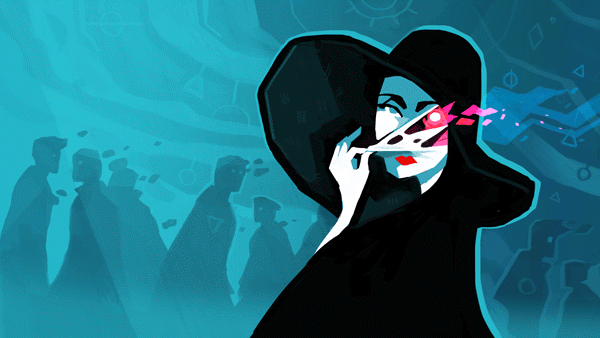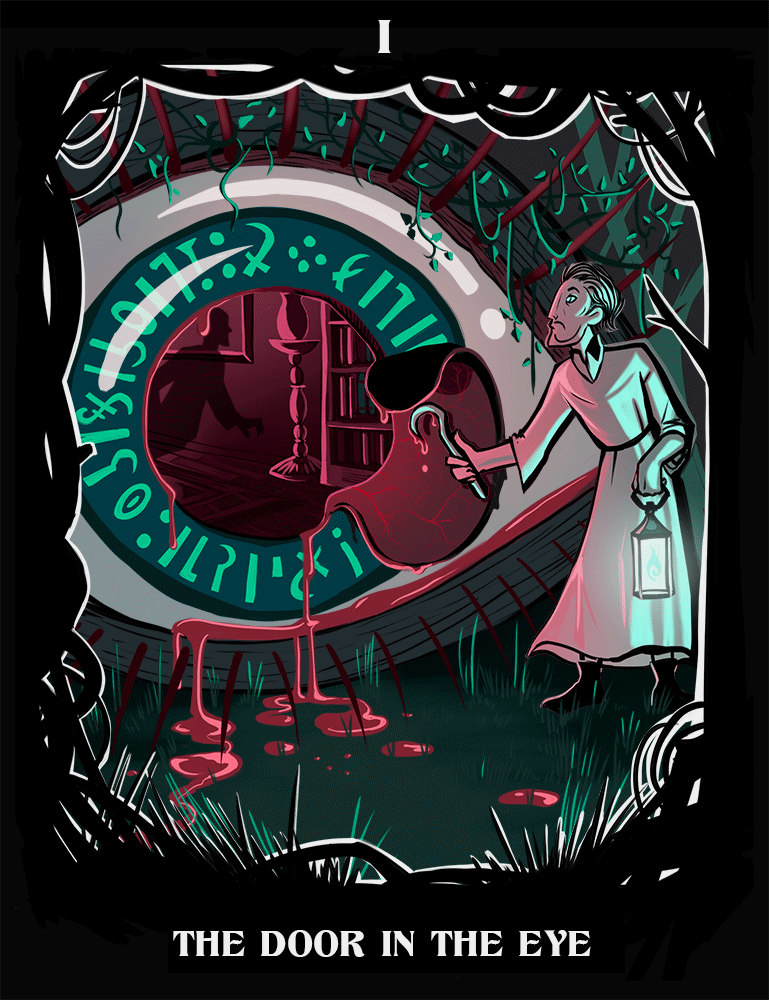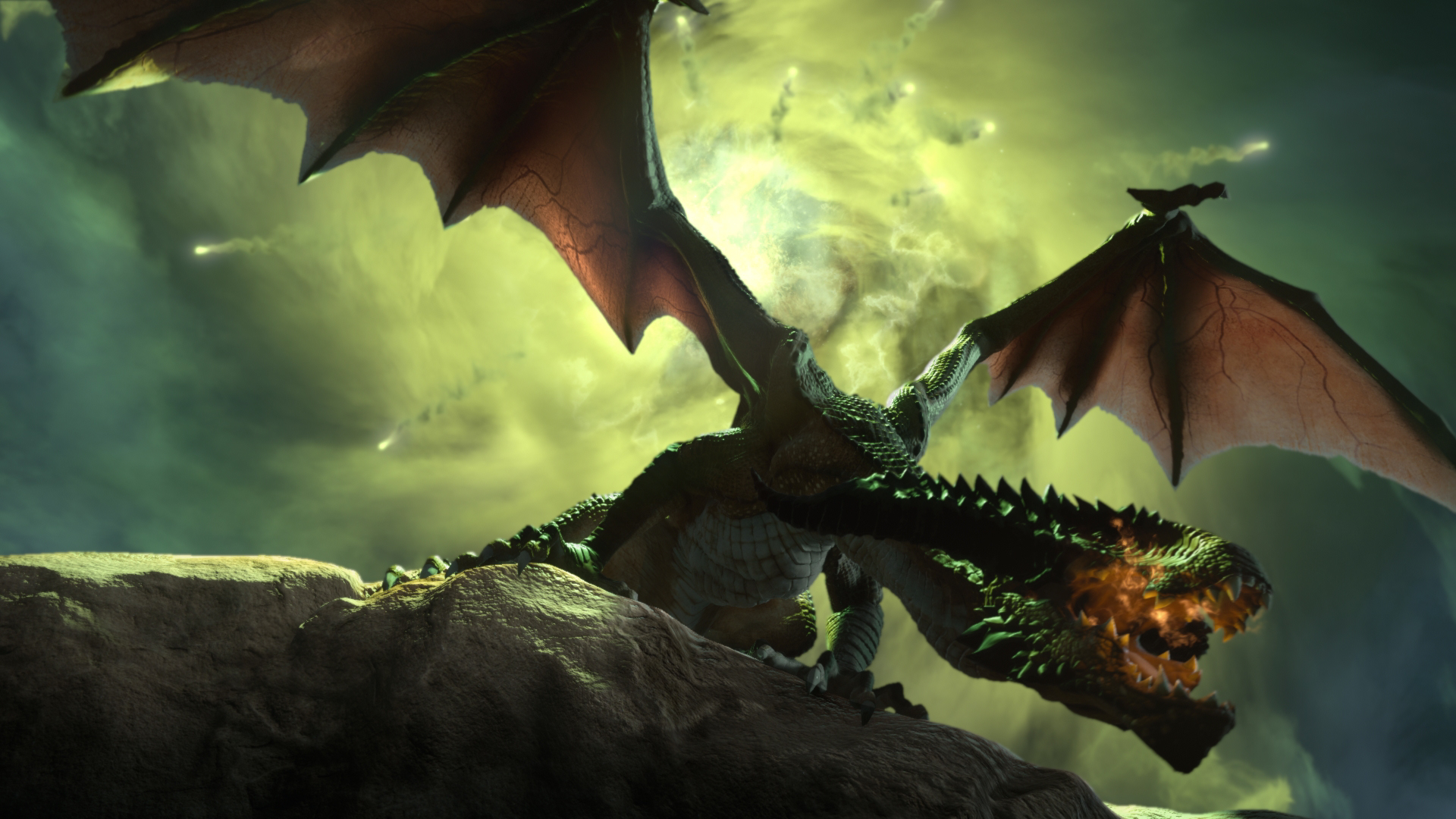'My creative calling is to freak people the f*** out,' says Alexis Kennedy on Cultist Simulator
The Sunless Sea director talks about taking a gap year and working with Bioware.
After founding Failbetter Games in 2010, writer and designer Alexis Kennedy left the Sunless Sea and Fallen London developer after six years of service last year. He's since freelanced on various projects for Paradox, Telltale Games and BioWare—and has now set up another indie outfit named Weather Factory. Its debut venture is digital card game Cultist Simulator.
"I'm sometimes controversial as a designer because sometimes people love my stuff, some people don't, but I think few people have anything bad to say about my writing," he tells me. "So that's always going to be the first selling point of the game. That's ultimately what I want to do with that, I want to pass down the writing in an interesting way."
With a Kickstarter on the horizon and an interesting year behind him, I spoke to Kennedy about where he's been, where he's going, and what we can expect from his next "modest in scope" project.

Alexis Kennedy founded Failbetter Games in 2010, and was the mastermind of both Fallen London and survival/exploration RPG Sunless Sea. He left the company last year to pursue freelance work for Paradox, Telltale and BioWare, and, having now set up another studio named Weather Factory, his next project is digital card game Cultist Simulator.
PC Gamer: You've been on quite a journey since the last time we spoke. Would you call it a gap year?
Alexis Kennedy: [Laughs] Yeah, it's exactly that. I decided that I wanted something where I saw the inside of as many operations as possible, and also was basically responsibility-free for a year. Very much indeed, yes. I was surprised how nice the people I've been working with are. I'm not surprised by how smart they are because you don't get to be a AAA studio if you're populated by numpties. I know, because of my pre-Failbetter days as a software consultant, that when you go into different companies and you see them do things in different ways, that you smite your hand with a heavy fist and are like: My god! Why didn't I think of that? I got a lot of that, but, yeah, it's been really good fun.
So, Cultist Simulator. It's the next big thing.
Yeah, well it's the next medium-sized thing.
Keep up to date with the most important stories and the best deals, as picked by the PC Gamer team.
Tell us everything we need to know.
Commercially and critically, I want to do two things that intersect. Commercially: I'm interested at the moment in making small, good, well-defined games. There's always this rising tide of quality and scope with indies now—I've just played Pyre last week and, oh my god, you've seen the level of polish on that. I don't want in the near future to run a team that is expected to produce anything of that quality. Sunless Skies, which is a bigger proposition from what Sunless Sea was, from what I've seen is coming along extremely polished. If I want to do things that other people haven't done with a smaller team of freelancers, and I can give people a good product that they enjoy, and then move the hell on and do something more difficult—that's really what I'm after, this modest scope.
Having a modest scope means I only have to have a modest success in order to keep making games. From a creative perspective, I want to keep on making stuff that serves two purposes: One, it's an overlap between game design and story—so there's a lot of resources management alongside story. And two, it freaks people the fuck out. My creative calling is very much to freak people the fuck out. One of the things that was constant with Fallen London and Sunless Sea was that there's this back and forth between: It's terrible, but it's kinda funny; it's really horrible, but it's kind of daft. That's what I always say about cannibalism. Of course eating people is wrong, but funny, but wrong. It's a serious issue—it's the basis in English case law for the defence of necessity not being available for murder, but it's also monstrous.
That's what I always say about cannibalism. Of course eating people is wrong, but funny, but wrong.
With Cultist Simulator what I wanted was to get back to that space so that you are living in Cultist Simulator as someone who is digging into the things that they need because they can't be satisfied in the real world. That's what I was getting at with apocalypse and yearning—you want to do something abominable. If you give a player a toolset and say: Right, you're a cultist, you go away and contact alien gods, seduce disciples into your service, feed your abominable appetites and, ultimately, rain blood down on the world. A lot of people will go: Fuck yeah, on principle.
A lot of people will do those things, but think about why it is you want to do them—not to get moralised by it but think about whether it's about power or revenge or curiosity or just because you don't give a fuck. And then, have a lot of narrative elements around it that ground that player's quest, to give them the opportunity to turn sides, or to double down, or to switch motives. One of the things you can do in the game at that moment is that you can choose either enlightenment, or power as your motive in seeking occult knowledge. If you change your mind you can switch and that changes your victory conditions.
You've followed an interesting path—from indie, to AAA development, to micro-indie. What's been the best part about that?
I said something on Twitter a few months back about how I'd just gotten out of bed, looked at my calendar, and there were no meetings in it on a Monday morning and I was surprised by the number of other mid-tier indie CEO types who put something in my mentions like, thanks mate. It is very easy for work to accrete when you're running a team—you start doing something, or you ask someone else to start doing something, without thinking about how a year, two years, five years, that thing will still need doing. If you keep your scope very lean, if you keep saying I can't do this because it's only me, or my artist isn't online yet, or I haven't the time to hire a PR so I'm just going to do the minimum, it's this very wearying thing—it forces you to do the two things out of a hundred that you can do instead of the 20 things out of a hundred that you can do.
It's like New Game Plus, that's what it's like! It's exactly like starting over and you're no longer looking at your inventory stuff for the elemental resistance items that you can't remember why you picked them up or whether or not you need to sell them, and you're just going back to your mangled knife and you're scrappy quality leather armour.
And the biggest challenge?
It's the loneliness, Joe. I'm an introvert, like a lot of writers. And it was an enormous relief to go into the office and not have to put my work face on everyday for a while. But then after a while you notice it because you're alone in a room, working from home. I was exclusively working remotely after last year, which is fine, and people are nice, but you're always going to be a little bit on the outside if you're not working with a group of people in the same room. Ultimately, it's a bit like the mad hermit in the clock tower—I make sure that I go to ground level from time to time to talk to real human beings.
Cultist Simulator strikes me as something Failbetter could have lent its name to. You could have, for example, taken a sabbatical and returned with this. Why was going it alone and starting again important to you?
There's two things that I couldn't do with Failbetter that I'm doing with this. First of all: Failbetter makes a particular kind of game these days and it's very hard to step away from that world and that game. I don't know, I'm not sure the guys know, that the next game will be in the Fallen London universe or not. I'd been writing Fallen London for seven years and I felt pretty much done with it. There's that and there's a whole infrastructure of expectation and technology about the way stories work, the quality, the choices, the very specific things that [their] playerbase expect. It's very interesting having worked at BioWare, it's a similar sort of thing—they want to do something new with each game but at the same time they have this huge burden of expectation from their playerbase who get quite frantic if they're not getting the game they expect. I knew there was going to be that kind of expectation with more games from Failbetter.
And the other thing is, I wanted to get my hands dirty making games myself. I was doing less and less writing, I hadn't done any coding in years and I do enjoy that. I was managing people who were managing people. I'm very happy to go back to running a team again, I missed that. But I think once you get to the point where you've got two layers of management underneath you without realising you've allowed that to happen then you head back. We could've hired a professional CEO and I could've taken a step back from the business and became the creative director, but that's obviously a tricky route to take.
My reaction when I'm faced with a difficult situation has often been to do something slightly nuts, like selling a company and going off on my own. That was very much how Failbetter was founded in the first place when I left a company as a software consultant to start this ridiculous which, at the time, wasn't even a games studio—it was this sort of transmedia thing that did some sort of web thing. But yeah, I'm really enjoying the independence, Failbetter is a great studio and I'm still very much in touch with the folks there.
I want to ask about Dragon Age. What can you tell me about it?
Well, what I can tell you is that some months ago I did an interview with another publication and that publication adduced from what I said that Dragon Age 4 is in the works—which isn't something I said, but isn't an insane deduction. Mike Laidlaw, the creative director of Dragon Age, did an interview a month or so after that and said Mr Kennedy is correct, there is a project being worked on that's in the Dragon Age franchise and that's where the detail train stops.
I was given considerable creative freedom to work on a particular bit of the lore, which I think is a bit of the lore that people might guess that I would be drawn to. I suspect that when the project that was described reaches the light of day—which another writer has taken over and will do a lot more work to make their own—they'll probably look and say: Yes, that's obviously the Kennedy bit.
A more pointed question about the "Kennedy bit", then: Can we expect some of Sunless Sea's oddness to bleed into the next game?
Unless it's ironed out by the challenges and vicissitudes of AAA production, a part of the game will immediately look familiar to anyone who's played Fallen London and Sunless Sea. There will definitely be that oddness visible in there.
Back to Cultist Simulator. There's a Kickstarter in the works?
Yes, there is. If anyone interested visits my Twitter or the Cultist Simulator website, there are links to the various things, and I've got some social media stuff running ahead of the Kickstarter. We've got the Kickstarter in September for a launch in February. There's a couple of things about the Kickstarter and launch which are slightly unusual.
First of all, I am deliberately running a modest Kickstarter—I think I'll probably be looking for around £30,000, which is half of what Sunless Sea looked for three years ago. I want to pay my artists and my UI freelancer. I can support myself for a while but I want to get as much third party resources as I can. That's the goal for funding: To make the game as good as it can be. Consequently, I'm managing my and everyone's expectations and a lot of the rewards—I'm not offering all the rewards you might expect from a regular Kickstarter, I'm focussing on making it simple for people to understand and simple for me to provide.
Give a player a toolset and say: You're a cultist, seduce disciples into your service, feed your abominable appetites and rain blood down on the world. A lot of people will go: Fuck yeah, on principle.
Some of the rewards are dafter than others. To my girlfriend's consternation, the £5,000 reward is allowing a backer to choose which piece of game art I'm going to have tattooed on me. Although my other half gets a veto. That's the high end one. But I'm really looking for something that's clearer and modest in scope rather than something bigger. It's always tempting when you're doing a Kickstarter to bang the drum as hard as you can and try to run that funding total up. The thing is, everything you offer in a Kickstarter you're writing a cheque for. I don't want to promise anything I'm not confident that I can achieve.
Also, there will only ever be one version of Cultist Simulator until full launch. There will be no backers' alpha, backers' beta, or separate early access version—if you back it on Kickstarter or subsequently buy it on Steam Early Access or GOG Games in Development on on Itch Refinery or any of that stuff, then what you get is access to the current build and a guarantee that you'll get all the additional content and DLC forever. It gets so complicated from the dev side keeping track of who's bought into the alpha, who's bought into the beta, dealing with people asking whether getting the early access version is the same as getting access to the Kickstarter version, that I just wanted to say: Here's the simplest thing possible, I want to provide extra value to the people who back the game early.
More information on Weather Factory's Cultist Simulator can be found via the game's official site.





